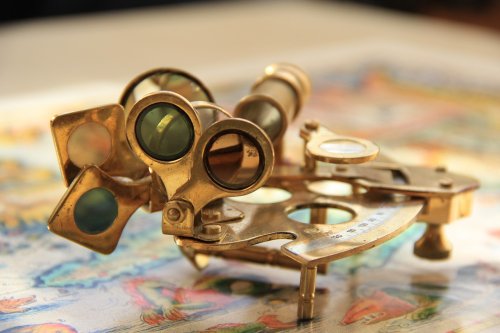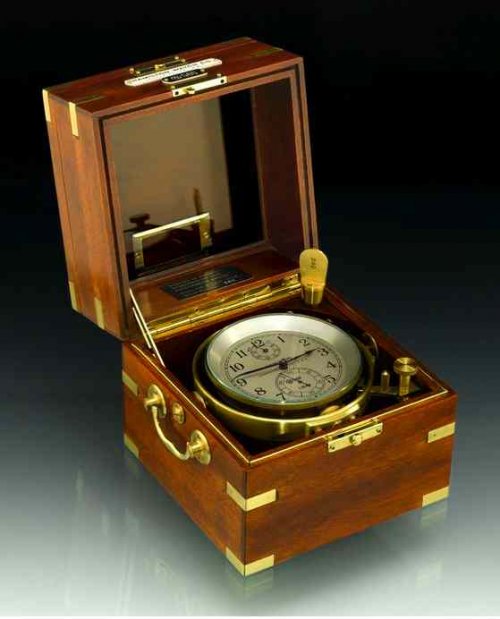Accuracy competitions in Navy

Starting with major shipping explorations conducted by European stakeholders such as Christophe Colomb, etc..., the way to define the East-West position (longitude) became a main priority. Most of European countries decided to propose prices to reward the first individual able to find a practical method to fix it The British government voted the "Longitude Act" in 1714 with an award of 20'000 pounds (300'000 francs-gold).
Chronometers for Navy

A navy chronometer, also named navy watch, is a clock with an accuracy allowing to be used as a portable time baseline, including a vehicle in movement. During the 18th century, the development of this type of devices represented a major technology step progress. The knowledge of the accurate time when travelling was required to the astronomy shipping to set the correct longitude. The first real chronometer was the result of hard efforts provided from one individual, John Harrison, during more than 31th years of testing and mistakes. This chronometer full changed the navy shipping traffic art (afterwards the air traffic) during the colonialism deployment.
